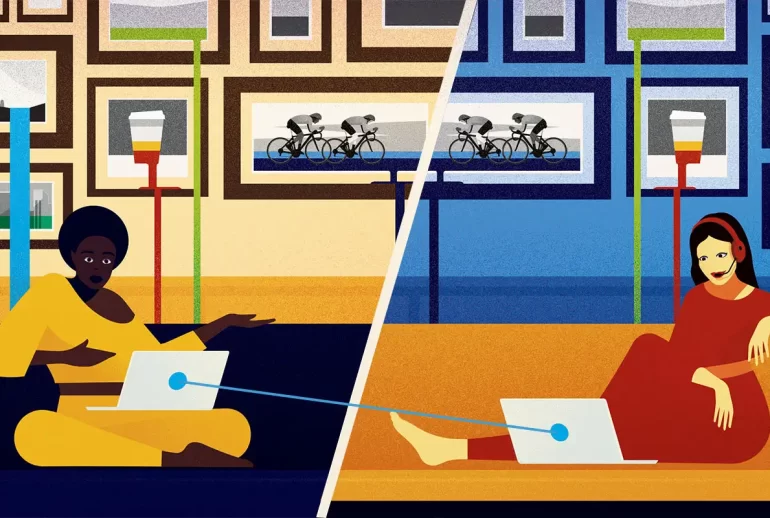
Modern social networks have significantly influenced social relations and communication processes, integrating themselves into the social techno-cultural environment. Let us focus on the social uses of social media with an emphasis on the positive and negative effects of social media presence.
The Double-Edged Sword of Social Connectivity
Networking is yet another area where social media shines, as the chances of keeping in touch with friends and relatives who live far away are significantly higher than ever. This connectivity can offer a lot of support and is especially valuable for those who might feel lonely or left out of their neighborhoods. Some of the sites that one can use to create profiles include Facebook, X, and LinkedIn where people can post their activities, achievements in their careers, and hobbies among other things.
Yet, these platforms are also a two-edged sword. The level of convenience in this social connectivity can come to the extent of replacing real-life contact and personal relationships. It can therefore impact our skills and capacity to form and sustain more personal and authentic relationships and may even result in social isolation even while constantly connected.
The Impact of Social Comparison
Social media use is associated with one of the major social psychological issues; that is, social comparison. By sharing life updates, people set unrealistic standards of achievement and satisfactory life due to the tendency to portray only the best moments. This curated reality may elicit feelings of low self-worth and low self-esteem among other users, as they compare their own lives to what they see is the more successful life of the influencer.
Specifically, it has been established that those who are more active on social media are most vulnerable to issues such as poor body image and low self-esteem as a result of the promotion of ideal images. This occurs most commonly among teenagers and youths as they are in a constant process of forming their self-images.
Cyberbullying and Online Harassment
While there are similarities, cyberbullying allows the bully to remain anonymous in most cases and is more severe and chronic compared to traditional bullying. The consequences of cyberbullying include high stress, anxiety, depression, and even suicide, especially if the situation is severe.
The platforms are constantly coming up with policies and trying to invent technologies to counter these problems but due to the anonymity and connectivity offered by the internet, it is nearly impossible to eliminate them completely.
Strategies for Healthy Social Media Use
However, it is important to consider approaches to coping with the adverse effects of social media on mental health. Limiting the time spent on social media, choosing friends and content with positive influence, as well as being aware of the content one shares and engages with can enhance or at least maintain one’s psychological well-being.
It is also helpful to engage in online relations and activities and combine them with offline ones. Hobbies, going out in nature, and attending events also help to overcome the excessive usage of digital means of communication.
Conclusion
On one hand, social media provide specific opportunities for making communication and connection richer, on the other, they pose specific threats to mental health. Knowing these challenges allows people to participate in social media while at the same time maintaining their psychological health. Therefore, it is crucial to achieve a balanced lifestyle and use the benefits of digital technology to create a fulfilling life.

The people need more peaceful life in this highly technical world. Psytechology is there to help the masses in it.
WhatsApp us